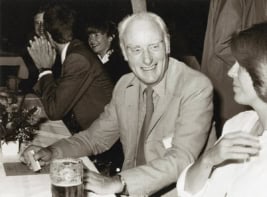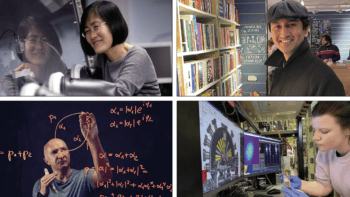By Margaret Harris
Earlier this week, the UK’s Science Council – an umbrella group for learned societies and professional bodies – published a list of the country’s 100 leading practising scientists. The rationale behind the list is interesting: according to the Council’s press release, it’s meant to “highlight a collective blind spot” in our attitudes towards scientists, which tend to “reference dead people or to regard only academics and researchers as scientists”.
I gave a quiet cheer when I read this. As I’ve noted before, fully 96% of the UK’s science PhD graduates make their careers in something other than academic research, yet their contributions often go unrecognized. There are many reasons for this, including commercial confidentiality and poor visibility (almost every academic scientist has their own webpage; most industry scientists don’t) along with the aforementioned “blind spot”. But whatever the reasons, a list honouring non-academic scientists seems long overdue.
Unfortunately, I’m not sure the Science Council’s list fits that description.
More than half of the people on the list are professors, and at least 60% are university researchers. Indeed, by my count, only 30 of the people on the list have no academic affiliation. If this list was meant to counteract the “scientist = academic” stereotype, I’d hate to see one that reinforced it.
There are also some curious omissions. It seems odd, for example, that Brian Cox – by far the UK’s best-known media scientist – isn’t among the 10 “Communicator Scientists” in the list. When my colleague Hamish Johnston asked the Science Council why Cox was left out, he was told that the Institute of Physics (which publishes Physics World) hadn’t submitted any names for the list. That’s unfortunate, but it’s also a red herring, since physicists are generally well represented: about a dozen made the cut, including Jocelyn Bell Burnell, Andre Geim and Martin Rees.
Still, it’s easy to stand aside and criticize, so I’ll finish with a few suggestions of my own. I would have included both Cox and Jim Al-Khalili in the list of “Communicators”. In the “Entrepreneur” category, I’d have made space for the engineer and inventor James Dyson, and perhaps also for Richard Friend of Cambridge University, who has founded two spin-out firms and is known for encouraging his students to follow suit. The quantum-information specialist Jeremy O’Brien would fit nicely into the “Investigator” category, as would the exoplanet hunter Suzanne Aigrain. And why isn’t Stephen Hawking one of the “Explorers”?
If you’ve got other suggestions, please put them in the comments. Note, however, that under the rules of the list, nominees need to be both British and alive to qualify.



